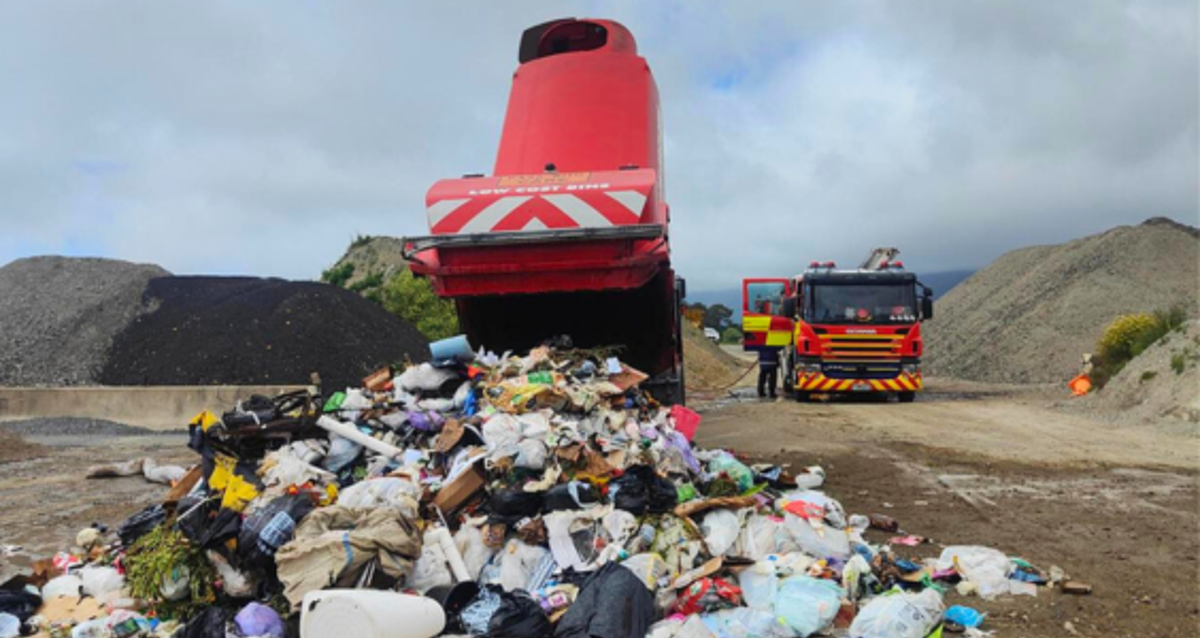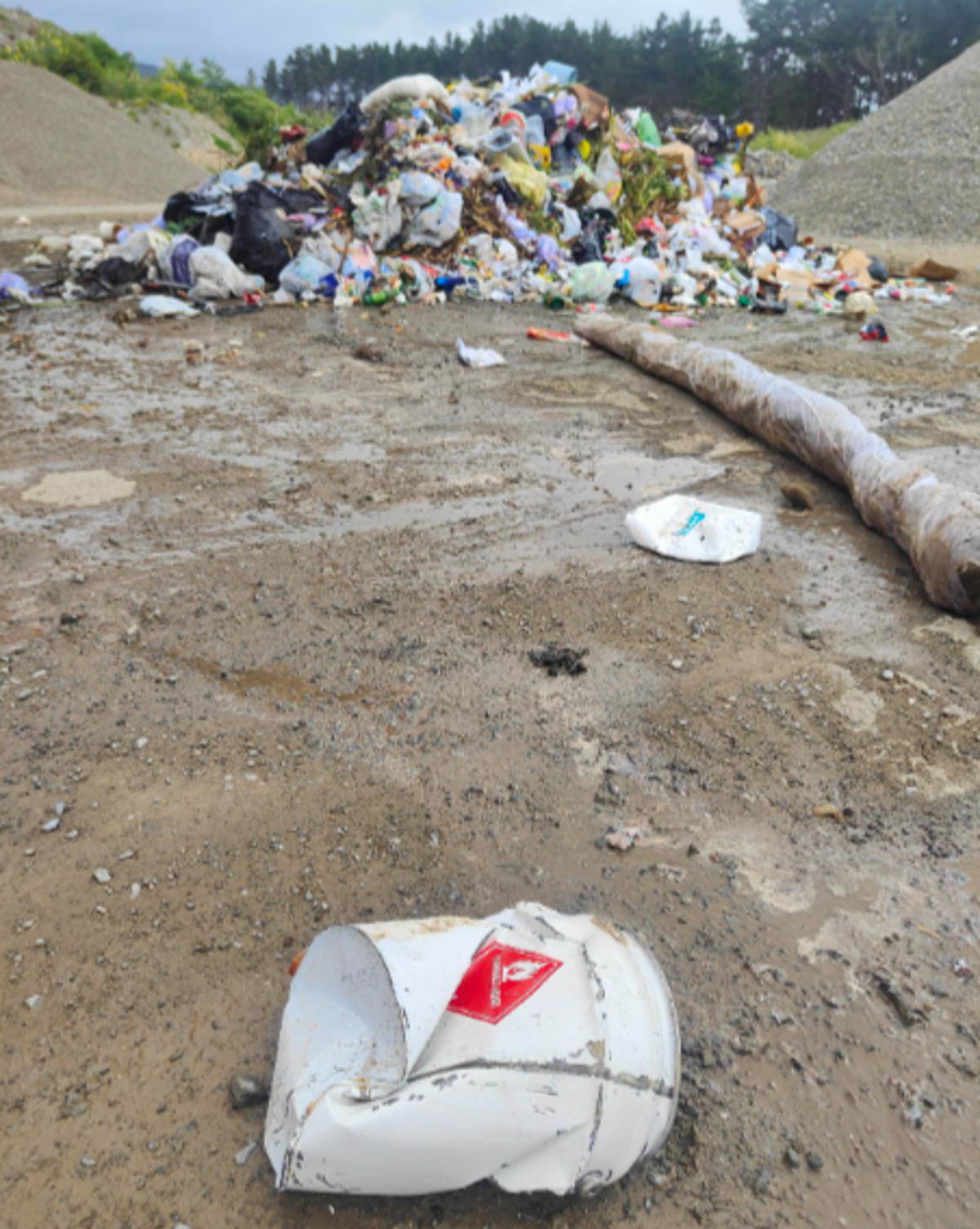To bin or not to bin? There’s not much question
12 Dec 2024, 9:42 AM
Recently we’ve seen some scary examples of why it’s important to dispose of hazardous waste properly.
Things like batteries, wet solvents or hot ashes should not go into your general waste bins – these items are flammable and can combust at any time, or pollute the environment further down the track.
When rubbish catches fire in a truck it obviously needs to be extinguished. Depending on the load this could mean emptying and soaking the whole lot. If things are well-engaged this might need to happen in the community.
No one wants a pile of burning garbage outside their front door.

Better here than on the street. Even better would have been if it didn’t catch fire at all. See larger image [PNG 297 KB].
Exhibit A
Recently, one of our rubbish contractors noticed something smouldering in a truck’s hopper.
(Fun fact: rubbish trucks have cameras in them so operators can see what’s going on back there.)
The driver did the right thing and promptly called the fire service, who attended the scene. High readings of cyanide and carbon monoxide were detected, and the road was cordoned off.
In this instance the whole load needed to be tipped out. Fortunately, the truck was able to make it to the landfill where this could happen in an isolated area.
If the fire had been more advanced this would have been on the street, and given the toxicity of the smoke nearby residents would have needed to evacuate while this was done.
The culprit? A 20-litre solvent container – complete with bright red sticker saying FLAMMABLE LIQUID – discovered lurking in the heap.
A big thank you to the switched-on driver whose quick action meant a disruptive and unpleasant job didn’t have to happen in the middle of a suburban street.

The culprit. The bright red sticker saying FLAMMABLE LIQUID is no joke.
Exhibit B
Back in July another driver noticed smoke wafting past the cab. A look in the camera confirmed it was coming from the hopper.
This time the driver shut down the compactor and was able to retrieve and douse the item – a cell phone battery – before it could develop into something more serious. Ka pai to that person.
Getting rid of hazardous stuff
You can recycle some household batteries for free at our libraries where we’ve got purpose-built drop stations. Other batteries can be safely disposed of at the Ōtaki or Otaihanga Transfer Stations.
Check out our Batteries and Hazardous and e-waste pages for more information on doing the right thing with your rubbish.